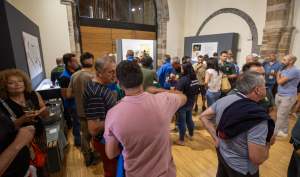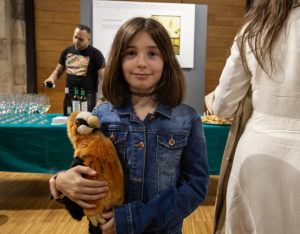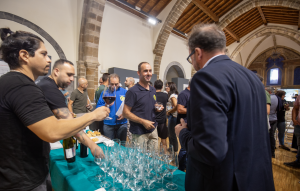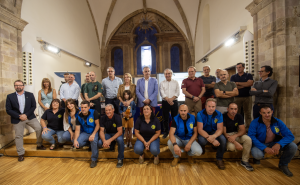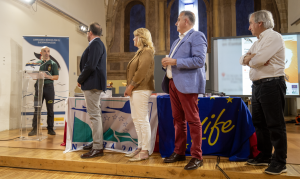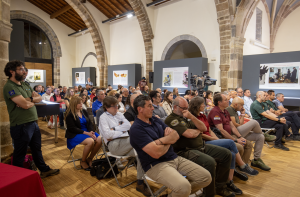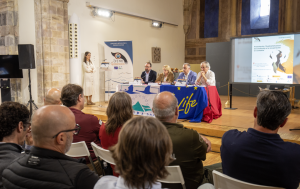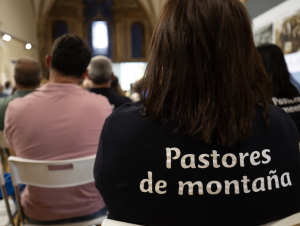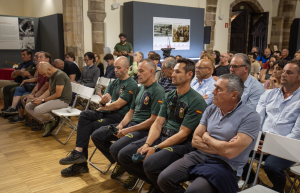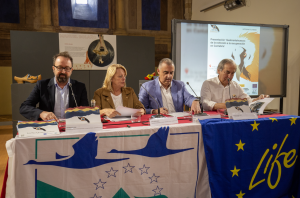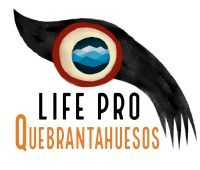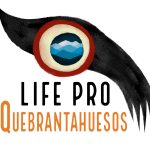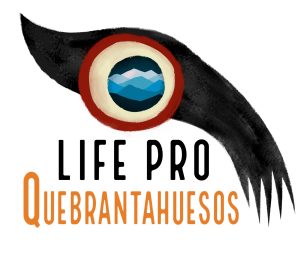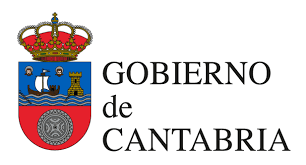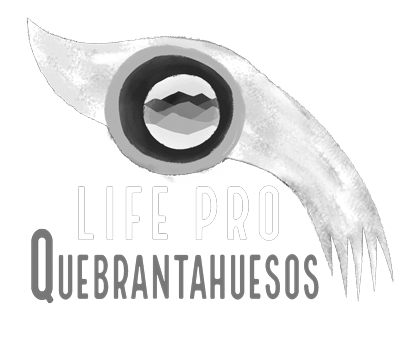Bearded vulture chick flies in Cantabria for the first time in 100 years in the wild
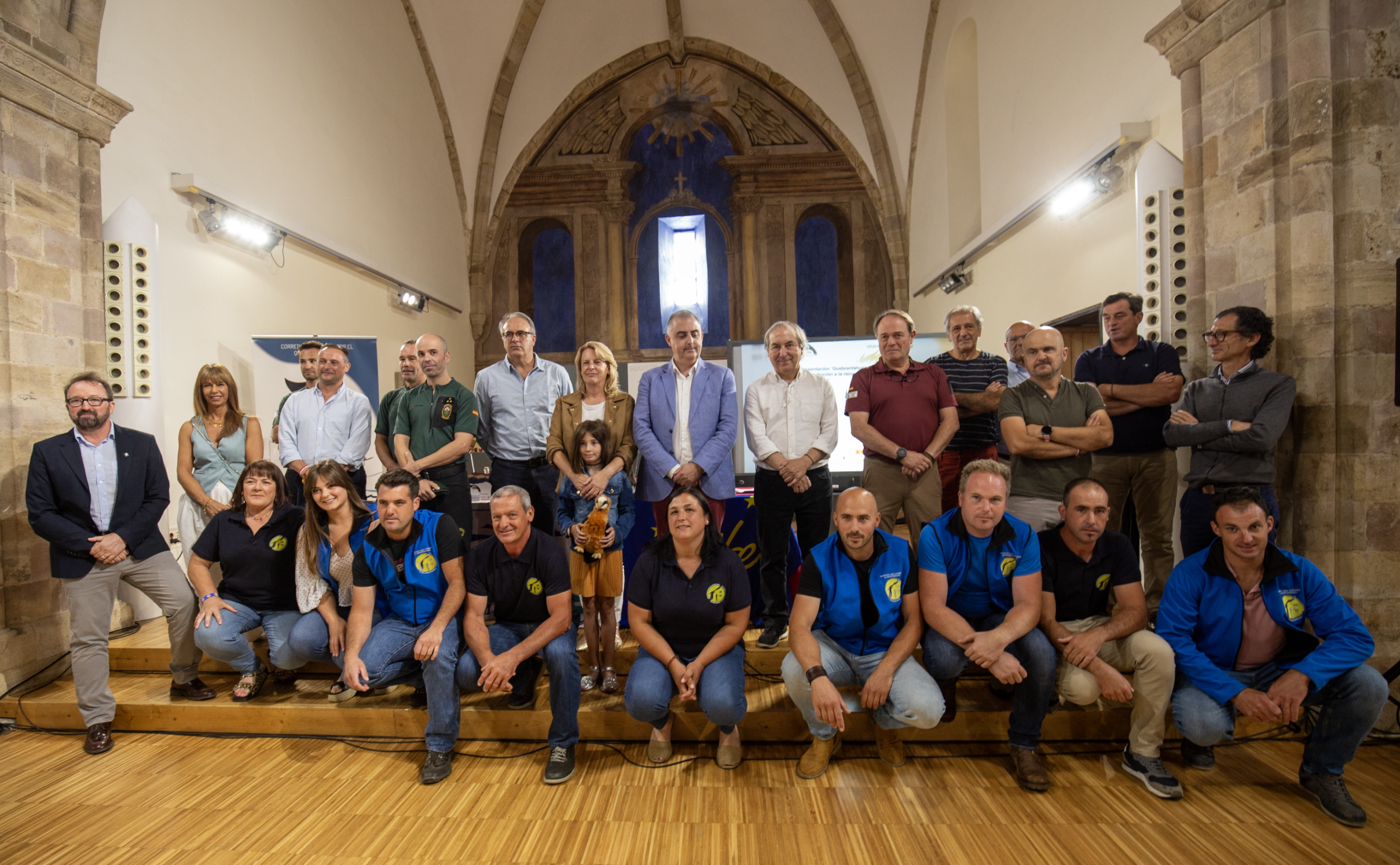
A pilot project to valorize the wool of farmers who market PRO Biodiversidad branded lamb
The Foundation for the Conservation of the Bearded Vulture has reached a “historic milestone” with the birth and flight in freedom of the first chick of this species in Cantabria since its extinction in the autonomous community one hundred years ago, specifically disappeared from the Picos de Europa in the second half of the twentieth century.
View this post on Instagram
This is the first time in this period that the first life cycle has been completed, from the hatching of the egg until the lammergeier has reached the right size to fly in the wild. Thus, the specimen, which has been baptized as ‘Candela’, will start flying at any time.
Their parents, Biziele and Niebla, come from the Pyrenees and arrived in the Picos de Europa thanks to the collaboration between institutions, since they were rescued by the Guardia Civil, with the intervention of the Government of Aragon in the Pyrenees, and transferred to Los Lagos de Covadonga to finally settle in Liébana because of the favorable environment, the flocks of sheep and the stable food.
The flight of Candela is “a milestone that puts the icing on the cake of a 15-year project of reinforcement and collaboration between local, regional and national administrations”, as highlighted by the Minister of Rural Development, María Jesús Susinos, in a ceremony held Monday at the Center for Studies Lebaniegos of Potes, in which he has been with the Minister of Environment, Roberto Media.
With his presence, the Government of Cantabria has supported the work developed by the Bearded Vulture Foundation and has moved its “firm” support to the project promoted from the Picos de Europa National Park, in which Cantabria holds the presidency this year.
Susinos recalled that in 2000 this foundation, in collaboration with the autonomous communities of the Cantabrian Coast, initiated a recovery project under the umbrella of the LIFE Pro Bearded Vulture program, consisting of habitat improvement, reduction of threats such as the use of poisons, power lines, attraction of specimens with decoys or the simulation of nests, all linked to “strong support for extensive mountain livestock”, the basis of rural food for the species.
As a result of the project, 57 specimens have been released, of which 40 survive, ranging in age from 15 years old to newborn chicks. In addition, 4 bearded vultures born in the wild and two vagrants from the Pyrenees and Andalusia.
PROJECT TO GENERATE 15 TONS OF SHEEP’S WOOL
For his part, the Minister of Environment has announced the implementation of a pilot project for the management and recovery of sheep wool in the region of Liébana, in collaboration with the Foundation for the Conservation of the Bearded Vulture, and that is part of the project for the recovery of the Bearded Vulture in the Picos de Europa, for the promotion of extensive livestock linked to biodiversity.
Through this initiative, the PRO Biodiversidad brand has been created for the marketing of suckling lambs, linking livestock farming to the conservation of the natural environment, but one of the challenges faced by farmers is the management of sheep wool generated during shearing campaigns, especially at the beginning of July.
Therefore, after receiving the request for support from the Foundation, the Government will install several large containers in strategic locations in the region to facilitate the collection and transport of the wool to the Meruelo facilities, where it will be treated and properly valorized.
“We have not hesitated to give an immediate response with the aim of preventing this waste from becoming an environmental and economic problem,” said Media, for whom this project is “an important step forward for the sustainability of local livestock farming.”
The locations of the containers will be Camaleño, in the Punto Limpio of Los Llanos; Cillórigo de Liébana, in the area of Pendes, and Peñarrubia, in the area of La Hermida, on the access road to Bejes. This year’s campaign is estimated to generate 15 tons of wool, with the participation of 10 farmers distributed among the areas of La Hermida (4), Tama (3) and Cosgaya (3).
The public company MARE will be in charge of providing the logistic service during the month of July, and the collections will be concentrated in three phases between the 22nd and 30th, with the aim of minimizing possible inappropriate discharges.
The Bearded Vulture Foundation will be responsible for informing and coordinating the participating breeders about the conditions of delivery of the wool.
PRO-BIODIVERSITY
Regarding the PRO Biodiversity project, the Councilor for Rural Development highlighted the fact that it allows farmers to live “with dignity from their work, in the place they have chosen”. Specifically, he explained that “it increases the direct benefit to the farmers involved by between 30 and 40 percent”.
Currently in Cantabria there are 17 shepherds and 22 in total in the Picos de Europa area, who are responsible for distributing the meat from their sheep of the white De la Peña and laxa breeds. The brand distinguishes suckling lamb from cattle breeders who keep their herds in extensive grazing in the pastures of the Natura 2000 network of the Cantabrian Mountains, and who contribute to the conservation of biodiversity.
In exchange, the Bearded Vulture Conservation Foundation organizes their sale in a short circuit, without intermediaries, so that the breeders obtain a fairer price. The brand began its journey in 2018, with two farmers, and in 2024 there were 22 associates, so more than 13,500 kilos will be marketed.
At the ceremony, among other authorities, were also present the mayor of Potes, Javier Gómez; the head of GREIM of Cangas de Onís, Pablo Villabrille; the vice president of the Foundation for the Conservation of the Bearded Vulture, Gerardo Báguena; the general directors of Forestry and Biodiversity and Livestock, Angel Serdio and Alfredo Alvarez, respectively, as well as deputies and mayors of the area.
The mayor of Potes has highlighted the importance of a project that “is giving very good results in the area”, while the vice president of the Foundation has highlighted the union of public and private capacities to “solve all the problems and make conservation so that species like the bearded vulture return to our habitats in the best possible way”.
News Excerpt: Europa Press Cantabria.
Photo gallery of the event:
